We all want a beautiful, confident smile. But sometimes, genetics or accidents can leave us with imperfections in our teeth that make us feel self-conscious. Thankfully, modern dentistry has a solution – porcelain veneers.
But what exactly are porcelain veneers, and how can they transform your smile? In this guide, we’ll take a closer look at dental veneers and everything you need to know about porcelain veneer treatment.
Understanding Dental Veneers
Dental veneers are thin, custom-made shells designed to cover the front surface of your teeth. They’re typically made from porcelain or resin composite materials and are permanently bonded to your teeth. Veneers are an excellent solution if you want to hide dental imperfections like discoloration, gaps, or misshaped teeth. They are precisely shaped and colored to blend seamlessly with your surrounding teeth, giving you a natural-looking, attractive smile.
Dental veneers are a highly effective and popular solution in cosmetic dentistry, transforming smiles across the globe. They offer a quick and long-lasting way to achieve the smile of your dreams. WebMD says that different types of veneers can last from 5 to as long as 20 years, depending on the material used. However, porcelain veneers are known to last the longest and provide the most natural-looking results. (1)
Types of Dental Veneers
Dental veneers come in various types, each with its unique characteristics and benefits. Your chosen type will depend on your specific dental needs and aesthetic preferences. Here’s a brief overview of the most common types of dental veneers:
Porcelain Veneers
Regarded as the gold standard in dental veneers, porcelain veneers are incredibly popular due to their durability, natural appearance, and resistance to staining. They are custom-made to fit your teeth and can last many years with proper care. Porcelain veneers offer a high degree of translucency that closely mimics the light-reflecting properties of natural teeth, making them virtually indistinguishable from your natural smile.
This type of veneer can correct a wide range of dental imperfections, including chipped, discolored, misshapen, or misaligned teeth. Despite their higher cost compared to other veneer types, many patients find the long-term benefits and aesthetic appeal of porcelain veneers well worth the investment.
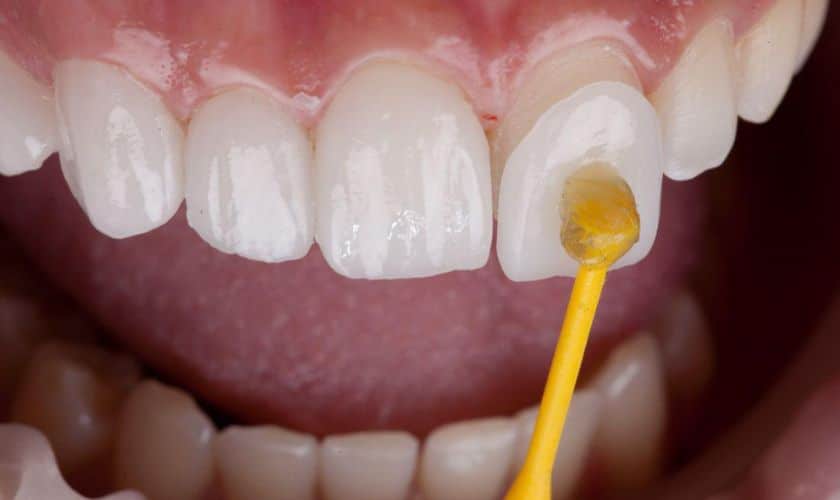
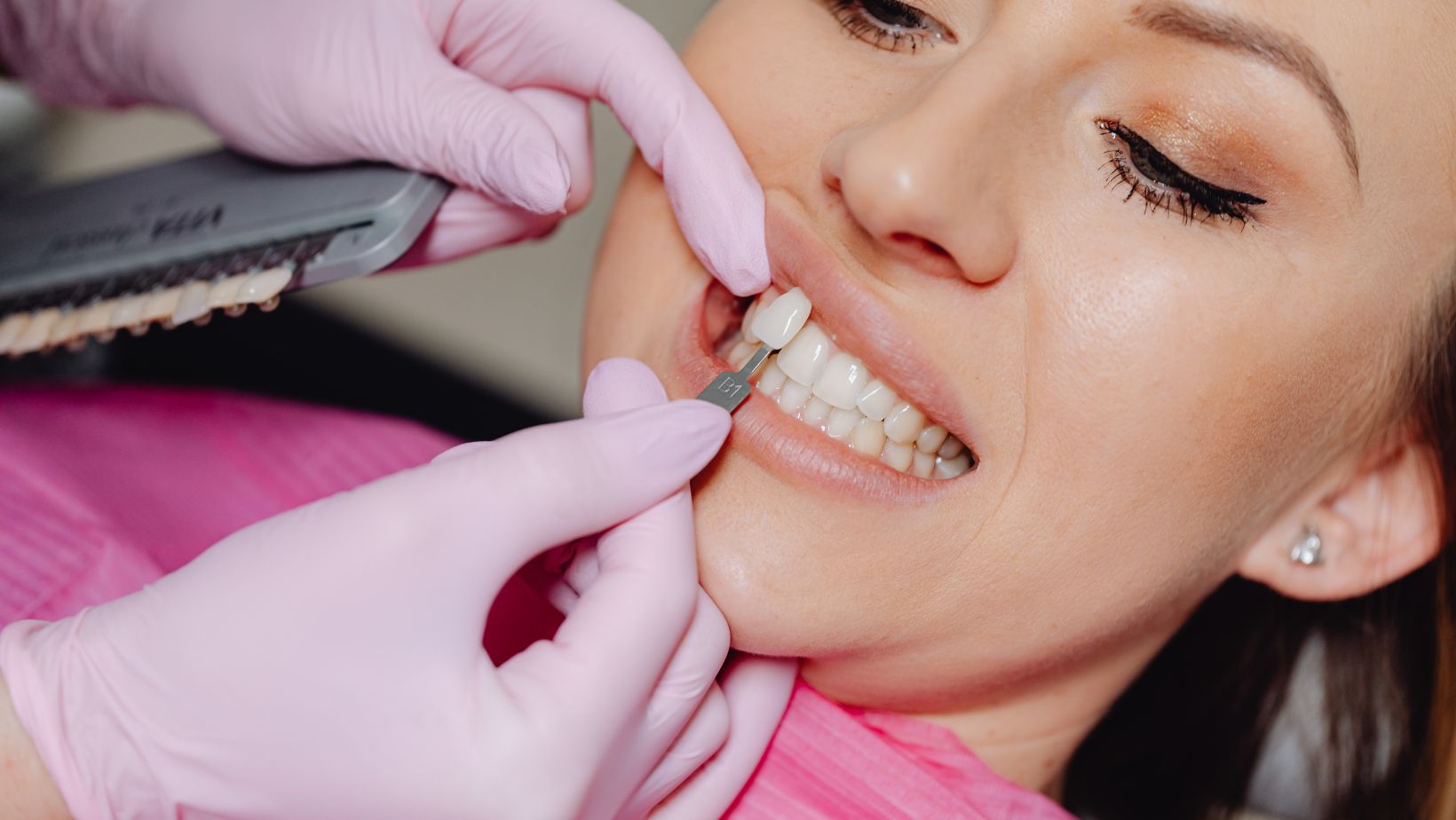
Composite Veneers
An alternative to porcelain, composite veneers are a cost-effective and quick solution for enhancing your smile. Composite resin is a type of dental material that can be shaped and molded right on your teeth, eliminating the need for a dental lab. The process typically requires just one appointment, making composite veneers popular for those seeking instant cosmetic improvements.
Despite being less durable and stain-resistant than their porcelain counterparts, composite veneers can be repaired easily if damaged, making them a flexible choice for many. They offer a suitable solution for minor dental imperfections such as small chips, cracks, or discoloration and are an excellent choice for those who wish to test the waters before committing to porcelain veneers.
No-Prep Veneers
No-prep veneers offer an excellent alternative for individuals seeking a less invasive method to enhance their smiles. These ultra-thin veneers, typically made of porcelain, require minimal tooth surface removal, preserving the tooth structure. This type of veneer is ideal for those with minor cosmetic issues, such as slight discoloration or minor crowding, and who want to achieve a natural-looking smile without undergoing extensive dental work.
No-prep veneers are reversible, meaning they can be removed if needed and do not alter the natural teeth in any way. However, their thinner structure means they may last less time than traditional porcelain veneers.
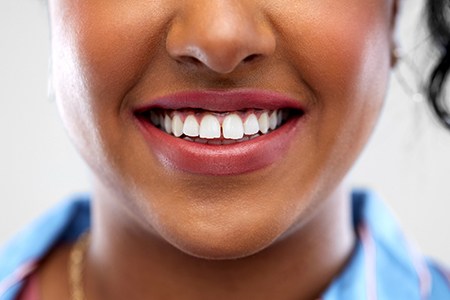
The Benefits and Risks of Teeth Veneers
Teeth veneers, especially porcelain ones, can be a transformative solution for many dental imperfections, providing a brighter and more confident smile. However, like any medical procedure, it’s essential to understand both their benefits and potential risks. Below, we’ve outlined some of the significant pros and cons to consider before deciding if veneers are the right choice for you:
Benefits of Veneers
- Natural Appearance: Veneers are made to match the color, shape, and size of your teeth, giving them a natural look that blends in seamlessly with your smile.
- Durability: Porcelain veneers are strong and can last up to 20 years with proper care, making them a long-lasting solution.
- Stain Resistance: Unlike natural teeth, porcelain veneers resist stains from coffee, wine, and tobacco, keeping your smile brighter for longer.
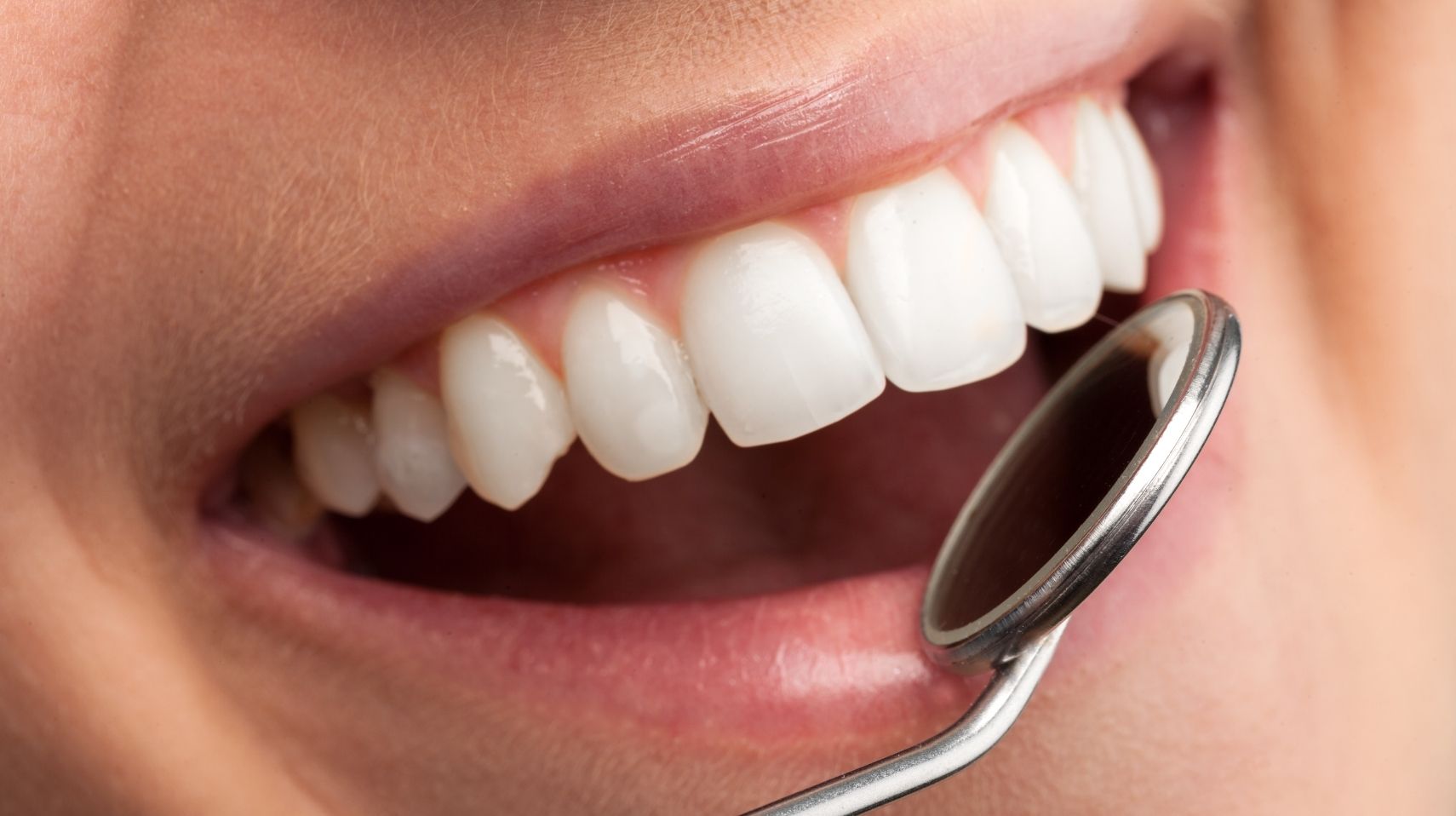

- Quick Transformation: Veneers can quickly rectify various cosmetic issues, from discoloration to gaps and misshapen teeth, often in just two to three visits.
- Minimal Tooth Alteration: The process requires minimal alteration of the natural tooth compared to other dental procedures like crowns.
Risks of Teeth Veneers
- Irreversible Procedure: The process of placing veneers includes the removal of some natural tooth enamel, which cannot be replaced.
- Sensitivity: Some patients may experience increased sensitivity to hot and cold temperatures after the procedure.
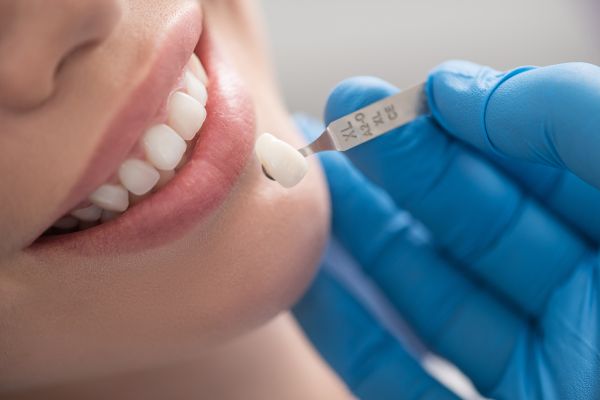

- Damage or Dislocation: While durable, veneers can be dislocated or damaged by hard foods, clenching, or grinding.
- Non-Replaceable: If a veneer comes off or is damaged, it often can’t be reattached—you’ll likely need a new veneer.
- Cost: Veneers can be costly, especially porcelain ones and not all insurance companies cover their cost.
Understanding the benefits and risks associated with dental veneers can help you decide whether this treatment best fits your dental needs and lifestyle. Always consult your dentist to discuss all potential options and find the best solution for your unique smile.
Who Is a Good Candidate to Get Porcelain Veneers on Their Teeth?
Porcelain veneers are a versatile solution suitable for a wide range of individuals. You might be a good candidate for porcelain veneers if you have healthy gums and teeth but are unhappy with certain aesthetic aspects of your smile. Individuals with discolored, chipped, worn down, misshapen, mildly misaligned teeth, or unwanted gaps between their teeth can significantly benefit from this treatment.
However, veneers might not be the ideal solution for everyone. Cleveland Clinic says that individuals with extensive tooth decay, gum disease, or a habit of grinding or clenching their teeth may not be suitable candidates for veneers. (2) Additionally, if you have insufficient enamel on your natural teeth, your dentist may recommend alternative treatments.
Cost of Porcelain Veneers
Costs for porcelain veneers can vary depending on various factors, such as the number of teeth requiring treatment and the location of your dentist. On average, however, you can expect to pay between $925 to $2,500 per tooth, according to the American Dental Association. (3)
Here are the factors that can affect the cost of veneers:
- Number of Teeth: The more teeth you want to have treated, the higher your total cost will be.
- Location: Dental treatment costs can vary depending on where you live and the average rates in your area.
- Materials Used: Porcelain is a high-quality and durable veneer material but comes at a higher cost than composite resin.
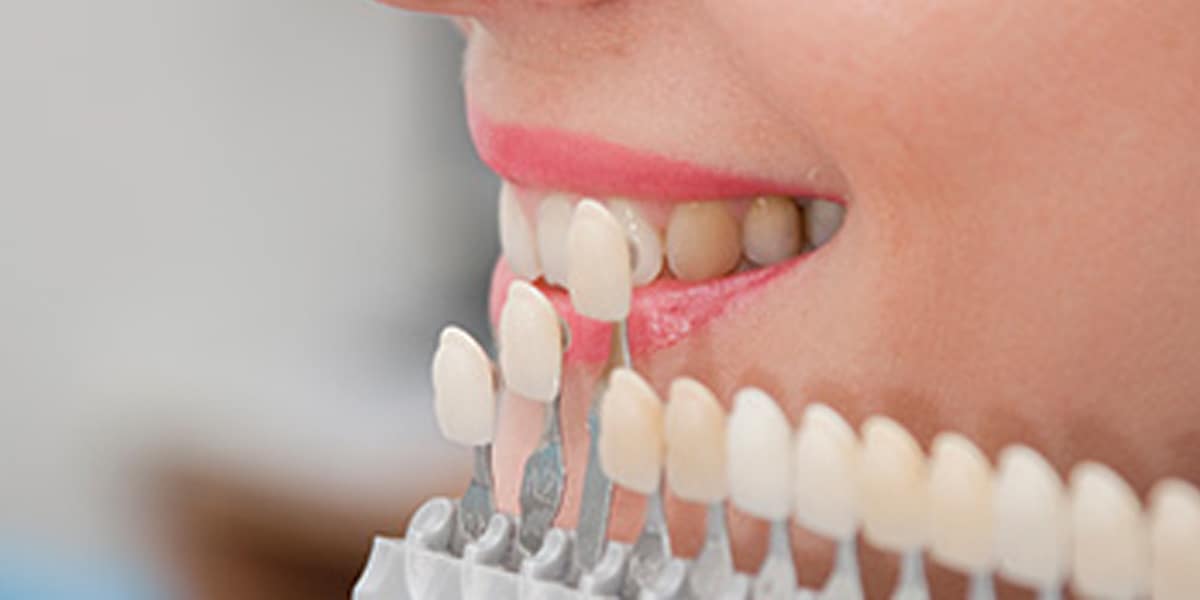
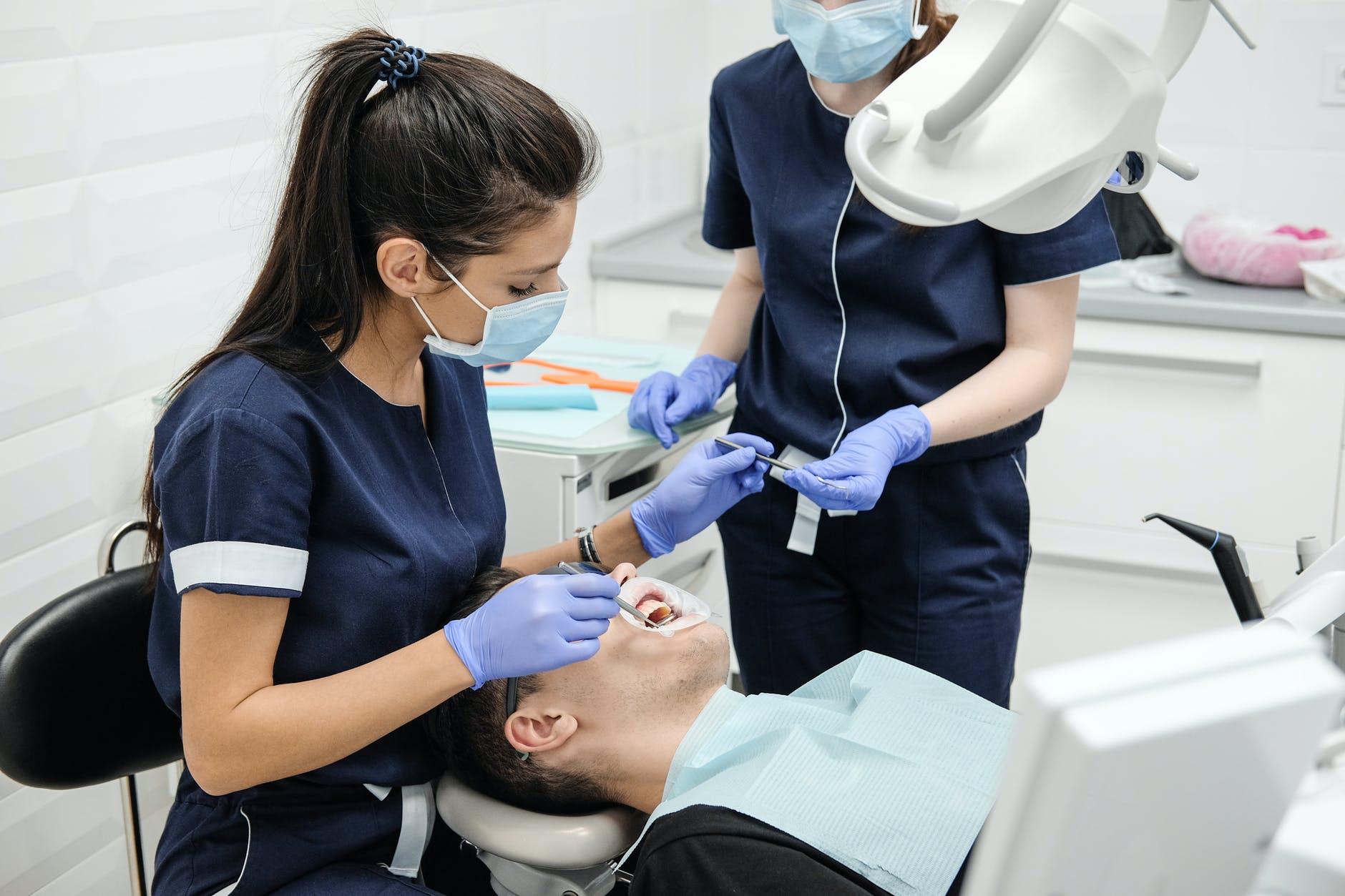
- Dentist’s Expertise: Highly experienced and reputable dentists may charge more for their services.
- Additional Treatments: It can add to the overall cost if you require additional procedures before or alongside veneers, such as teeth whitening or gum contouring.
In addition to the cost of veneers, it’s essential to consider any additional procedures that may be required to prepare your teeth. Since most patients do not have naturally straight and evenly-sized teeth, the process often involves some reshaping and contouring to create the ideal canvas for the custom veneers. This meticulous preparation ensures a seamless and natural-looking result.
If you are contemplating getting veneers, having an open discussion with your dentist is crucial. At Pinnacle Dental Group, our team of experts will guide you through the process and discuss all potential costs before starting any treatment. Don’t hesitate to schedule an appointment today and take the first step towards achieving the beautiful, confident smile you deserve!
Process for Getting Porcelain Veneers
The process for getting porcelain veneers generally involves three stages and can be completed across a few dental visits. During your first appointment, your dentist will evaluate your dental health and discuss your aesthetic goals to determine if veneers are suitable for you. They may also take X-rays or make impressions of your mouth and teeth.
Once you’re deemed a good candidate for veneers, preparing your teeth for the procedure is the next step. In this stage, your dentist will remove a thin layer of enamel from your natural teeth to create space for the veneers. They may also take an impression of your teeth to use as a guide for creating custom veneers that fit perfectly over your prepared teeth.
The porcelain veneers are placed and bonded to your teeth during your final appointment using a special adhesive. Your dentist will carefully check the fit and make any necessary adjustments, ensuring a comfortable and natural-looking result.
Recovery and Post Veneer Care
After placing your porcelain veneers, you may experience some minor discomfort or sensitivity. However, this typically subsides in a few days as your mouth adjusts to the new veneers. Recovery time is generally short, allowing you to resume your normal lifestyle quickly.
Caring for your veneers is straightforward and similar to caring for your natural teeth. Here are some post-veneer care tips to ensure your veneers stay in the best condition for as long as possible:
- Brushing and Flossing: Maintain a regular oral hygiene regimen. Brush at least twice a day and floss daily to keep your veneers and natural teeth clean and healthy.
- Regular Check-Ups: Visit your dentist every six months for a routine check-up and professional cleaning. This will help maintain your veneers’ longevity and overall oral health.
- Avoid Hard Foods: Try to avoid biting into hard foods with your veneers to prevent any potential damage.
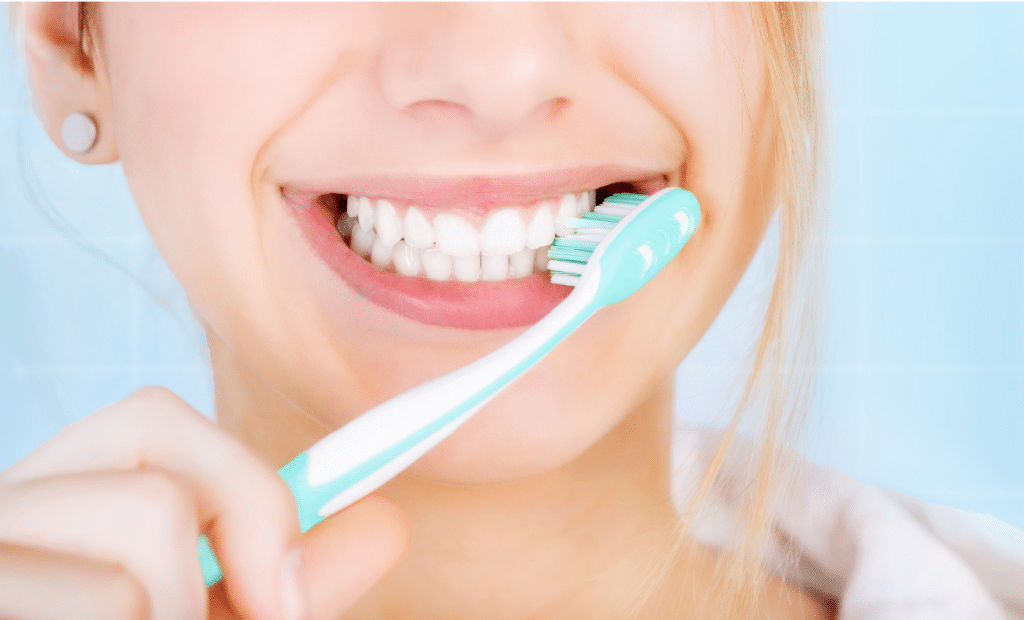

- No Smoking: Smoking can cause staining and discoloration to both your natural teeth and veneers.
- Wear Protection: If you play contact sports or have a habit of grinding your teeth at night, consider wearing a mouth guard to protect your veneers.
- Limit Staining Foods and Drinks: Veneers can stain over time like natural teeth. Limit consumption of staining foods and beverages, such as coffee, tea, and red wine.
Remember, while veneers are designed to be durable and long-lasting, they still require care and attention to maintain their appearance and function. With proper care, your veneers can last anywhere from 10 to 20 years before needing replacement.
Removal of Veneers
Porcelain veneers are designed to last for many years, but there may come a time when they need to be replaced or removed. Removing veneers is a delicate process that a skilled dental professional should perform to ensure minimal damage to the underlying tooth. Your dentist will use specialized tools to carefully dislodge the veneer from the tooth surface while keeping your comfort and safety as a top priority.
The tooth underneath will usually need to be re-prepared before receiving a new veneer. This process involves removing a small amount of tooth enamel and shaping the tooth to hold the new veneer. In some cases, if the veneer is being removed for cosmetic reasons, a temporary veneer may be placed until the permanent one is ready.
If you are considering getting porcelain veneers, make sure to choose a reputable and experienced dentist who will guide you through the process with care and expertise. At Pinnacle Dental Group, we pride ourselves on our personalized approach and commitment to providing our patients with the highest quality of care.
Frequently Asked Questions
How long do porcelain veneers last?
Porcelain veneers can last anywhere from 10 to 20 years with proper care and maintenance. It’s important to follow a good oral hygiene routine and visit your dentist regularly for check-ups and cleanings.
Are veneers fake teeth?
No, veneers are not fake teeth. They are thin shells made of porcelain that are bonded to the front surface of your natural teeth. This allows for a natural-looking and durable solution for improving the appearance of your smile.
Are veneers permanent?
No, veneers are not permanent. While they can last for many years, they may need to be replaced or removed at some point in the future. It’s important to discuss the longevity and maintenance of veneers with your dentist during your consultation.
What is more expensive than veneers?
The cost of veneers can vary depending on the number of teeth being treated and the complexity of the case. However, alternative options such as orthodontic treatment or dental crowns may be more expensive in the long run.
Are veneers painful?
The process of getting veneers is not typically painful. Some patients may experience slight discomfort or sensitivity during recovery, but this should subside in a few days. Your dentist will take steps to ensure your comfort throughout the procedure.
Can you eat with veneers?
Yes, you can eat with veneers just like you would with your natural teeth. However, avoiding biting into hard foods or using your teeth to prevent potential veneer damage is essential. It’s also recommended to limit the consumption of staining foods and drinks to maintain the appearance of your veneers.
Final Thoughts
Porcelain veneers are an efficient and effective way to transform your smile, offering a durable and natural-looking solution to common dental imperfections. They seamlessly blend with your natural teeth, enhancing your appearance and boosting your confidence. At Pinnacle Dental Group, we are committed to providing high-quality dental services, guiding you through your dental journey with personal care and expertise. Your smile is our passion, and we strive to create a comfortable and friendly environment where you can feel at ease.
If you’re considering veneers, we would be delighted to discuss your options and answer any questions you may have. Start your journey to a brighter, more confident smile with us today.
References:
- Cleveland Clinic
- Healthline
- WebMD
Return to the main veneers page here.
